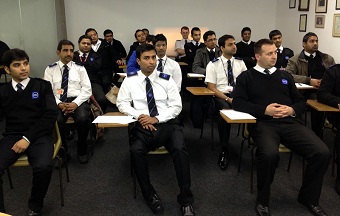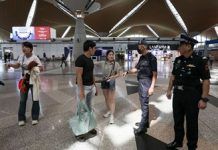Irish private security personnel will receive training on how to recognise and tackle human trafficking under plans being developed by the Private Security Authority (PSA). The PSA last year developed new training requirements for those in the door supervisor, security guarding and event security sectors, according to its 2020 annual report.
While delayed because of Covid-19, the PSA expects to shortly announce a new timeframe for the training courses following consultations with industry stakeholders. The courses will expand learning in “areas such as conflict avoidance and reduction, effective crowd control, drugs awareness and identification, effective access and egress control measures and security person’s responsibilities under data protection legislation”.
The PSA has also recently provided training providers with new mandatory guidelines on physical intervention training targeted at those working in the door supervisor and event sectors. Chief executive Paul Scallan said the PSA is working with MECPATHS on the development of an online learning platform for the security industry to raise awareness and help prevent human trafficking.
He said: “I believe that the security sector has a unique contribution to make to the fight against all crime including trafficking in humans. The nature of their work means that security personnel have access to areas often restricted to the public and they are trained to observe and identify instances of criminality.”
Hildegarde Naughton, minister of state at the Department of Justice, added: “Earlier this month I launched a campaign with the International Office for Migration to make people aware that human trafficking is a crime that is happening here. The campaign is about making everyone alert to the signs of human trafficking should they encounter it in any context.
“Frontline staff have a particular role to play in this and my Department funds the development of training, through NGOs, targeting front line staff in industries such as hospitality, airline and shipping who may come into contact with trafficked persons.
“Providing similar training to security personnel will create a stronger, wider network of people, present in various industries and settings, who can work with us to help identify victims of trafficking so we can ensure they get the help they need.”








